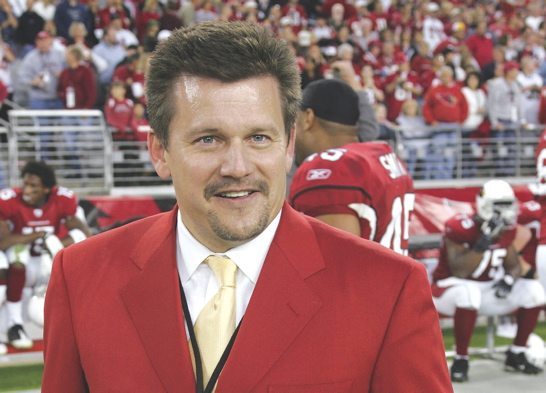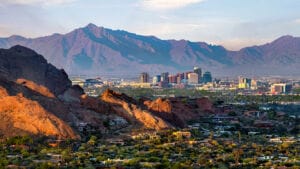During these difficult economic times, how vital is an organization such as the Greater Phoenix Economic Council (GPEC) to the local economy?
GPEC is vitally important because it is the only regional organization focused exclusively on bringing new business to Greater Phoenix. Because GPEC works closely with companies considering expansion to the region, they know what companies need to make business decisions and gain insight into what steps the state can take to better compete with our Mountain West competitor states.
What can the Valley do to better position itself to succeed once the recession is over?
Diversify our economy and work with public sector leaders to create sensible, new programs that bring high-wage industries to Arizona. During the last decade of the real estate explosion, Arizona was one of the leading job-producing states. Over the last two years, we have fallen to 49th in terms of new job creation. Business as usual will not work. Now is the time to change our metrics and compete for other industries to migrate to Arizona.
Arizona and Greater Phoenix routinely lose projects to less desirable locations because of aggressive relocation programs in other states. GPEC has developed modest, fiscally responsible programs, such as the Quality Jobs Through Renewable Industries program, for the Arizona Legislature to consider. GPEC has vetted these programs with decision-makers in the renewable energy industry. Senior executives within these industries have told us this program would put Arizona in a more competitive position to win projects. GPEC also had Elliott D. Pollack and Company conduct a third-party review of our program to confirm its fiscal impact.
We need to immediately work with the state to develop and implement new programs that make our region more competitive.
What are some of the initiatives and goals you have planned this year for GPEC, and how will you go about achieving those goals?
In addition to solar and renewable energy, GPEC has three other strategies that we feel are meaningful generators of new business. We continue to work aggressively on a foreign direct investment program, as the United States is still an attractive environment to invest in for international companies. Next, in working with many of our public sector leaders, we are actively seeking to locate companies to Greater Phoenix from neighboring states with higher operating costs of doing business. Lastly, health care in Arizona is an untapped resource. In fact, Arizonans routinely seek health care outside of the state valued at hundreds of millions of dollars. We need to work with the health care industry to determine the needs not currently being met in Arizona and look to those opportunities for economic growth.
How did you first become involved in GPEC and how have your own professional experiences prepared you for your current role?
The Arizona Cardinals have long been stakeholders of GPEC, as we believed in its important work. I had no personal involvement until Glendale Mayor Elaine Scruggs asked me to serve on the GPEC board three years ago. I was honored to join and realized quickly how critical this organization is to helping our local economy grow, especially during this downturn and with the state’s budget cuts to the Arizona Department of Commerce.
You’ve seen first hand how important professional sports are to the local and regional economy. How can the Valley capitalize more on that in the future?
Sports are important to Arizona and we need to support what we have now. But, again, we need to focus on diversifying our economy. Like a personal stock portfolio, we cannot become “over-weighted” in any single sector. We have all the teams we need, but it will be important to attract events with significant economic impacts and exposure like the Super Bowl in the future. Our regional success will depend largely on creating a diverse and vibrant economy around many new industries and we can’t look to real estate or sports to take us out of this downturn.



